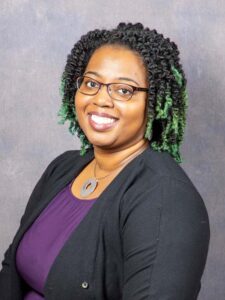The Rachel Carson Council (RCC) National Advisory Council
 The Rachel Carson Council National Advisory Council provides the RCC with expert advice on achieving its mission, deepening the influence and impact of its programs, and continuing Rachel Carson’s legacy of sound science combined with empathy, imagination and wonder, effective communication with a broad public, and bold advocacy and action. Its members are particularly committed to helping the RCC develop the next generation of American environmental justice and health leaders, providing inspiration and mentoring to the RCC Fellowship Program, the RCC American Environmental Leadership Institute, and the RCC Campus Network.
The Rachel Carson Council National Advisory Council provides the RCC with expert advice on achieving its mission, deepening the influence and impact of its programs, and continuing Rachel Carson’s legacy of sound science combined with empathy, imagination and wonder, effective communication with a broad public, and bold advocacy and action. Its members are particularly committed to helping the RCC develop the next generation of American environmental justice and health leaders, providing inspiration and mentoring to the RCC Fellowship Program, the RCC American Environmental Leadership Institute, and the RCC Campus Network.
Linda Lear – Senior Advisor
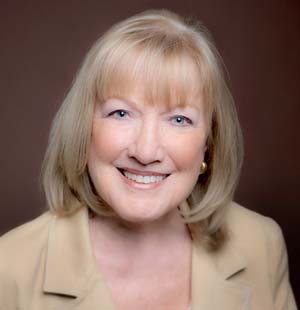 Linda Lear, biographer and historian, holds a Ph.D. in History from George Washington University. As the leading authority on Rachel Carson, Dr. Lear is the Senior Advisor to the Rachel Carson Council. She has served as a Senior Smithsonian Research Associate, a Beinecke Fellow, Research Professor of Environmental History at George Washington University and Senior Research Scholar in History at the University of Maryland, Baltimore County. She is currently Senior Fellow of the Linda Lear Center for Special Collections and Archives at Connecticut College where she is a Trustee Emeritus.
Linda Lear, biographer and historian, holds a Ph.D. in History from George Washington University. As the leading authority on Rachel Carson, Dr. Lear is the Senior Advisor to the Rachel Carson Council. She has served as a Senior Smithsonian Research Associate, a Beinecke Fellow, Research Professor of Environmental History at George Washington University and Senior Research Scholar in History at the University of Maryland, Baltimore County. She is currently Senior Fellow of the Linda Lear Center for Special Collections and Archives at Connecticut College where she is a Trustee Emeritus.
She is the author of the acclaimed definitive biography of Rachel Carson, Rachel Carson: Witness for Nature,(republished 2009 by Houghton Mifflin Harcourt). She is also the editor of Lost Woods: The Discovered Writing of Rachel Carson (Beacon Press, 1998), a collection of Carson’s writings over the course of her life introduced by Lear. She is the author of numerous academic and popular articles on Carson, as well as the author of introductions to the 40th and 50th anniversary editions of Silent Spring (2002, 2012). Dr. Lear also edited and wrote the Introduction to the 1996 Penguin edition of Carson’s first and favorite book, Under the Sea-Wind (1941).
Lear’s biography of Carson was awarded the prize for the best book on women in science by the History of Science Society in 1999. Chatham University (Carson’s alma mater) conferred an Honorary Doctorate in Humane Letters on Lear in 2008 for her research and writing on women in the environment. Lear’s research papers and adjunct collections dealing with Carson’s life, Carson’s friends and colleagues, and the controversy over Silent Spring form the core of the Lear/Carson Collection at The Linda Lear Center for Archives and Special Collections at Connecticut College in New London, CT.
Lear is also the biographer of the English author, artist and naturalist Beatrix Potter. Her prize-winning book, Beatrix Potter: A Life in Nature (2007) was published in the UK by Penguin in paper as Beatrix Potter: The Extraordinary Life of a Victorian Genius. (2008).
Jamie Berger
 Jamie Berger is an award-winning documentary filmmaker, writer, speaker, and activist. Her first feature-length documentary, The Smell of Money, follows a North Carolina community fighting for environmental justice against the world’s largest pork company. Following her entry into advocacy via federal lobbying and social issue communications, Jamie served as the Senior Video Producer and, later, Chief of Staff at the international animal protection organization Mercy For Animals. She also founded and led a grant program, The People’s Fund, to address racial inequity in philanthropy within the animal advocacy movement. Her current focus is leveraging The Smell of Money as an advocacy tool to advance the fight for a more just, sustainable food system for all. The film has played at 30 festivals and over 100 community-led and theatrical screenings; it is now widely available on demand.
Jamie Berger is an award-winning documentary filmmaker, writer, speaker, and activist. Her first feature-length documentary, The Smell of Money, follows a North Carolina community fighting for environmental justice against the world’s largest pork company. Following her entry into advocacy via federal lobbying and social issue communications, Jamie served as the Senior Video Producer and, later, Chief of Staff at the international animal protection organization Mercy For Animals. She also founded and led a grant program, The People’s Fund, to address racial inequity in philanthropy within the animal advocacy movement. Her current focus is leveraging The Smell of Money as an advocacy tool to advance the fight for a more just, sustainable food system for all. The film has played at 30 festivals and over 100 community-led and theatrical screenings; it is now widely available on demand.
Jamie’s writing has been featured in Vox, The Guardian, USA Today, NowThis, The News & Observer, and more. Her educational videos about the harms of industrial animal agriculture have amassed hundreds of millions of views. Throughout her career, Jamie has used writing and visual storytelling to draw attention to issues ranging from environmental racism to the climate crisis to other injustices wrought against people, animals, and the planet.
Douglas Brinkley
Douglas Brinkley is the Katherine Tsanoff Brown Chair in Humanities and Professor of History at Rice University, a CNN Presidential Historian, and a contributing editor at Vanity Fair. He has received seven honorary doctorates in American Studies. He works in many capacities in the world of public history, including for boards, museums, colleges and historical societies. Six of his books were named New York Times “Notable Books of the Year” and seven became New York Times bestsellers.
His The Great Deluge: Hurricane Katrina, New Orleans and the Mississippi Gulf Coast, 2007, received the Robert F. Kennedy Human Rights Book Award. He was personally selected by Nancy Reagan to edit President Ronald Reagan’s presidential diaries (2011). His 2012 book Cronkite won Fordham University’s Ann M. Sperber Prize for outstanding biographies. His two-volume annotated The Nixon Tapes, 2016, won the Arthur S. Link – Warren F. Kuehl Prize. He received a Grammy Award in 2017 as co-producer of Presidential Suite: Eight Variations on Freedom (Best Jazz Ensemble). The New-York Historical Society selected Brinkley in 2017 as their official U.S. Presidential Historian. He is on the Board of Trustees at Brevard College and the Franklin D. Roosevelt Presidential Library. He is a member of the Century Association, Council of Foreign Relations and James Madison Council of the Library of Congress.
He lives in Austin, Texas with his wife and three children.
Melanie Choukas-Bradley
Melanie Choukas-Bradley is a Washington, DC author and naturalist whose newest book is Finding Solace at Theodore Roosevelt Island, illustrated by Tina Thieme Brown, with a foreword by Dr. Thomas Lovejoy (September 2020). She is also author of Resilience—Connecting With Nature in a Time of Crisis, with a foreword by Wendy Paulson (May 2020), and The Joy of Forest Bathing—Reconnect With Wild Places & Rejuvenate Your Life, illustrated by Lieke van der Vorst, with Spanish and Finnish translations (2018). Melanie is the author of A Year in Rock Creek Park: The Wild, Wooded Heart of Washington, DC, with photographs by Susan Austin Roth (2014). The book was awarded a 2015 Independent Publishers’ IPPY silver medal for mid-Atlantic nonfiction.
Melanie is the author of three other critically acclaimed books: City of Trees—The Complete Field Guide to the Trees of Washington, DC, illustrated by Polly Alexander, with a foreword by Adrian Higgins, and now in its third edition (2008); An Illustrated Guide to Eastern Woodland Wildflowers and Trees: 350 Plants Observed at Sugarloaf Mountain, Maryland, illustrated by Tina Thieme Brown (2004, 2007); and Sugarloaf: The Mountain’s History, Geology, and Natural Lore, illustrated by Tina Thieme Brown (2003). She leads field trips, tree tours and forest bathing walks for the Audubon Naturalist Society, the United States Botanic Garden, Smithsonian Associates, the Rock Creek Conservancy, the Nature Conservancy, Politics & Prose, the Aspen Center for Environmental Studies and other organizations. She lives in Chevy Chase, Maryland.
Luz Claudio
 Dr. Luz Claudio is a tenured professor of environmental medicine and public health at Icahn School of Medicine at Mount Sinai in New York City. She is also Chief of the Division of International Health. One her most important scientific contributions was the discovery of the high numbers of children with asthma in poor communities in New York City. Dr. Claudio works with many community organizations to address such environmental justice issues.
Dr. Luz Claudio is a tenured professor of environmental medicine and public health at Icahn School of Medicine at Mount Sinai in New York City. She is also Chief of the Division of International Health. One her most important scientific contributions was the discovery of the high numbers of children with asthma in poor communities in New York City. Dr. Claudio works with many community organizations to address such environmental justice issues.
She is also deeply engaged in reducing disparities in gender and race in academia and directs several training programs through which she mentors aspiring scientists and medical professionals. Dr. Luz Claudio is the author of the book: How to Write and Publish a Scientific Paper: The Step-by-Step Guide and appears frequently in national media, including a popular TED talk, “Why Science Needs Community Engagement… and Internships”.
Deborah Cramer
Deborah Cramer writes about science, nature, and the environment. She has written three books, Great Waters: An Atlantic Passage, Smithsonian Ocean: Our Water Our World, and The Narrow Edge: A Tiny Bird, an Ancient Crab, and an Epic Journey. The Narrow Edge received the Best Book Award from the National Academies of Science, the Rachel Carson Book Award from the Society of Environmental Journalists, the Reed Award from the Southern Environmental Law Center, and was designated a “must read” by the Massachusetts Book Award. The Narrow Edge has now been translated into Spanish and Chinese.
Cramer was awarded an Audubon A from the Massachusetts Audubon Society, “recognizing exceptional action on behalf of the living environment,” and has been named by the Sierra Club as an outstanding contemporary writer “whose words can make us reconsider or better appreciate our relationship to the natural world.”
Deborah lives with her family at the edge of a salt marsh in Gloucester, Massachusetts, where each year she awaits the arrival of horseshoe crabs and alewives in tidal creeks, and the passage of migrating sandpipers and herons.
Lynn R. Goldman
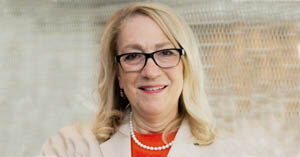 Dr. Lynn R. Goldman, a pediatrician and epidemiologist, is the Michael and Lori Milken Dean and Professor of Environmental and Occupational Health at the Milken Institute School of Public Health at the George Washington University. She is a renowned expert in pediatric environmental health and chemicals policy. She also has engaged in translating research to policy through writing policy analyses and via Congressional testimony in service of successful efforts by Congress to achieve passage of reforms both to federal pesticide law (the 1996 Food Quality Protection Act) and federal chemicals law (the 2016 Lautenberg Chemical Safety Act for the 21st Century) as well as legislation to establish California’s Childhood Lead Poisoning Prevention Program.
Dr. Lynn R. Goldman, a pediatrician and epidemiologist, is the Michael and Lori Milken Dean and Professor of Environmental and Occupational Health at the Milken Institute School of Public Health at the George Washington University. She is a renowned expert in pediatric environmental health and chemicals policy. She also has engaged in translating research to policy through writing policy analyses and via Congressional testimony in service of successful efforts by Congress to achieve passage of reforms both to federal pesticide law (the 1996 Food Quality Protection Act) and federal chemicals law (the 2016 Lautenberg Chemical Safety Act for the 21st Century) as well as legislation to establish California’s Childhood Lead Poisoning Prevention Program.
She was previously Professor of Environmental Health Sciences at the Bloomberg School of Public Health (1999-2010); Assistant Administrator for Toxic Substances at the U.S. Environmental Protection Agency, where she directed the Office of Chemical Safety and Prevention (1993 – 1998); and Chief of the Division of Environmental and Occupational Disease Control (as well as other positions) at the California Department of Public Health.
She completed a BS and MS from UC Berkeley, an MD from UC San Francisco; an MPH from Johns Hopkins University; and pediatric residency training at the UCSF Benioff Children’s Hospital in Oakland.
She is a member of the National Academy of Medicine (NAM) and received the NAM Walsh McDermott Award for service to the academy. She a recipient of the Heinz Award for Global Environmental Change and the American Public Health Association Environment Section’s Homer M. Calver Award. Dr. Goldman is also a Trustee of the Environmental Defense Fund; chair of the board for the Association of Schools and Programs of Public Health; a member of the NIH National Advisory Environmental Health Sciences Council; chairs the NIH Advisory Committee for the ECHO Study; and serves on the National Academy of Sciences, Engineering and Medicine Environmental Health Matters Initiative.
Drew Lanham
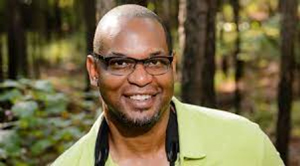 Drew Lanham is an American author, poet and wildlife biologist. Raised in Edgefield, South Carolina, Lanham studied zoology and ecology at Clemson University, where he earned a PhD in 1997 and where he currently holds an endowed chair as the Alumni Distinguished Professor of Wildlife Ecology in the Department of Forestry and Environmental Conservation. Dr. Lanham is also a Master Teacher and Certified Wildlife Biologist who serves on the boards of the South Carolina Wildlife Federation, Audubon South Carolina, the Aldo Leopold Foundation, BirdNote, the American Birding Association, and as an advisory board member for the North American Association of Environmental Education. In 2019 he was awarded the National Audubon Society‘s Dan W. Lufkin Prize for Environmental Leadership, recognizing “individuals who have dedicated their entire lives to the environment”.
Drew Lanham is an American author, poet and wildlife biologist. Raised in Edgefield, South Carolina, Lanham studied zoology and ecology at Clemson University, where he earned a PhD in 1997 and where he currently holds an endowed chair as the Alumni Distinguished Professor of Wildlife Ecology in the Department of Forestry and Environmental Conservation. Dr. Lanham is also a Master Teacher and Certified Wildlife Biologist who serves on the boards of the South Carolina Wildlife Federation, Audubon South Carolina, the Aldo Leopold Foundation, BirdNote, the American Birding Association, and as an advisory board member for the North American Association of Environmental Education. In 2019 he was awarded the National Audubon Society‘s Dan W. Lufkin Prize for Environmental Leadership, recognizing “individuals who have dedicated their entire lives to the environment”.
In 2013, Lanham wrote a piece for Orion Magazine titled “9 Rules for the Black Birdwatcher”, drawing attention to the lack of black birders and diversity in general among naturalists. The short piece inspired producer Ari Daniel and videographer Amanda Kowalski to create a short film with the same title for BirdNote which quickly went viral on social media. In 2016 he wrote “Birding While Black.” In 2017 he published the award-winning memoir, The Home Place: Memoirs of a Colored Man’s Love Affair with Nature, which was listed in The Chronicle of Higher Education as one of the 11 best scholarly books of the 2010s.
Mark Madison
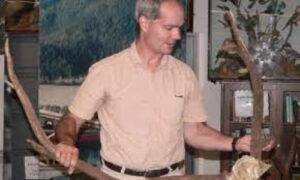 Mark Madison is the National Historian for the U.S. Fish and Wildlife Service. He is an environmental historian and historian of science who conducts educational outreach, designs museum displays, and helps maintain the 500,000 item National Conservation Training Center Archives/Museum which holds the archives of the Rachel Carson Council. He teaches environmental history, environmental ethics, and environmental film at Shepherd University and previously taught at the University of Melbourne and at Harvard. He is also the Treasurer of the American Society of Environmental Historians. Madison was a double major in history and biology at Macalester College and holds a Ph.D. from Harvard in History and Philosophy of Science and Technology. He lives in Hagerstown, MD and works in Shepherdstown, WV. His passions include flyfishing and family.
Mark Madison is the National Historian for the U.S. Fish and Wildlife Service. He is an environmental historian and historian of science who conducts educational outreach, designs museum displays, and helps maintain the 500,000 item National Conservation Training Center Archives/Museum which holds the archives of the Rachel Carson Council. He teaches environmental history, environmental ethics, and environmental film at Shepherd University and previously taught at the University of Melbourne and at Harvard. He is also the Treasurer of the American Society of Environmental Historians. Madison was a double major in history and biology at Macalester College and holds a Ph.D. from Harvard in History and Philosophy of Science and Technology. He lives in Hagerstown, MD and works in Shepherdstown, WV. His passions include flyfishing and family.
Emily McAuliffe
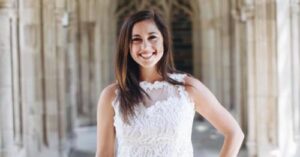 Emily McAuliffe is Deputy Director for Public Engagement, The Council on Environmental Quality, The White House. Ms. McAuliffe previously served as Special Advisor for External Affairs in NOAA’s Office of Communications. She has also worked as a Legislative Assistant on the House Committee on Science, Space, and Technology, Subcommittee on Environment. She graduated from Duke University where she studied public policy. While at Duke, she spent two summers as a Stanback Fellow at the Rachel Carson Council which fueled her continuing passion for the intersection of policy, environment, and social justice.
Emily McAuliffe is Deputy Director for Public Engagement, The Council on Environmental Quality, The White House. Ms. McAuliffe previously served as Special Advisor for External Affairs in NOAA’s Office of Communications. She has also worked as a Legislative Assistant on the House Committee on Science, Space, and Technology, Subcommittee on Environment. She graduated from Duke University where she studied public policy. While at Duke, she spent two summers as a Stanback Fellow at the Rachel Carson Council which fueled her continuing passion for the intersection of policy, environment, and social justice.
Bill McKibben
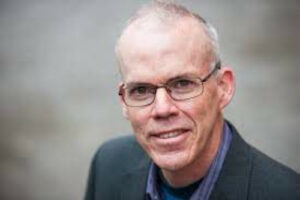 Bill McKibben is the Schumann Distinguished Scholar in Environmental Studies at Middlebury College. His 1989 book The End of Nature is regarded as the first book for a general audience about climate change and has appeared in 24 languages. He’s gone on to write many more books, and his work appears regularly in periodicals from the New Yorker to Rolling Stone. McKibben is a fellow of the American Academy of Arts and Sciences. He has won the Gandhi Peace Prize as holds honorary degrees from 19 colleges and universities. He was awarded the Right Livelihood Award, sometimes called the alternative Nobel, in the Swedish Parliament. Foreign Policy named him to its inaugural list of the world’s 100 most important global thinkers.
Bill McKibben is the Schumann Distinguished Scholar in Environmental Studies at Middlebury College. His 1989 book The End of Nature is regarded as the first book for a general audience about climate change and has appeared in 24 languages. He’s gone on to write many more books, and his work appears regularly in periodicals from the New Yorker to Rolling Stone. McKibben is a fellow of the American Academy of Arts and Sciences. He has won the Gandhi Peace Prize as holds honorary degrees from 19 colleges and universities. He was awarded the Right Livelihood Award, sometimes called the alternative Nobel, in the Swedish Parliament. Foreign Policy named him to its inaugural list of the world’s 100 most important global thinkers.
McKibben helped found and advises 350.org, the first global grassroots climate campaign, and has organized on every continent, including Antarctica, for climate action. He played a leading role in launching the opposition to big oil pipeline projects, and the fossil fuel divestment campaign, which has become the biggest anti-corporate campaign in history, with endowments worth more than $15 trillion stepping back from oil, gas, and coal. He lives in the mountains above Lake Champlain with his wife, the writer Sue Halpern, where he spends as much time as possible outdoors.
Cathy Middlecamp
 Cathy Middlecamp is Professor Emerita in the Nelson Institute for Environmental Studies of the University of Wisconsin – Madison and an affiliate of its Chemistry Department. From 2015-2020, she also served as the director for education and research at the Office of Sustainability. Her scholarship lies at the intersection of science, people, and the planet. For her teaching and work bringing science to the general public, she has received awards at the local, state, and national levels.
Cathy Middlecamp is Professor Emerita in the Nelson Institute for Environmental Studies of the University of Wisconsin – Madison and an affiliate of its Chemistry Department. From 2015-2020, she also served as the director for education and research at the Office of Sustainability. Her scholarship lies at the intersection of science, people, and the planet. For her teaching and work bringing science to the general public, she has received awards at the local, state, and national levels.
Middlecamp served as the editor-in-chief for the 7th and 8th editions of Chemistry in Context, a 25-year national curriculum project of the American Chemical Society. This undergraduate textbook engages undergraduate students in learning chemistry in the context of real-world issues. Working on the project from 1996 to 2013, she served as the lead author for the chapters on air quality, acid rain, ozone depletion, polymers, food, nuclear energy, and sustainability.
She is a fellow of the AWIS (Association for Women in Science, 2003), AAAS (American Association for the Advancement of Science, 2004), and the ACS (American Chemical Society, 2009). She was elected chair of the ACS Division of Chemical Education in 2015 and of the AAAS Education Section in 2016. For each, she served a 3-year term in the chair succession.
Middlecamp was an undergraduate at Cornell University (1968-72), graduating Phi Beta Kappa with distinction in all subjects. She was awarded a Danforth Fellowship for graduate study and earned her doctorate in chemistry from the University of Wisconsin-Madison in 1976.
Sandra Steingraber
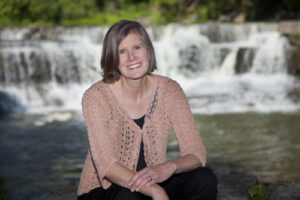 Sandra Steingraber is a biologist, author, and cancer survivor who writes about climate change, ecology, and the links between human health and the environment.
Sandra Steingraber is a biologist, author, and cancer survivor who writes about climate change, ecology, and the links between human health and the environment.
Steingraber’s highly acclaimed book, Living Downstream: An Ecologist’s Personal Investigation of Cancer and the Environment was the first to bring together data on toxic releases with data from U.S. cancer registries and was adapted for the screen in 2010. As both book and documentary film, Living Downstream has won praise from international media.
Continuing the investigation begun in Living Downstream, Steingraber’s books, Having Faith: An Ecologist’s Journey to Motherhood and Raising Elijah: Protecting Our Children in an Age of Environmental Crisis, explore the intimate ecology of pregnancy and reveal the ways which environmental hazards now threaten each stage of infant and child development. Throughout, she calls parents and cancer patients alike to political action.
Called “a poet with a knife” by Sojourner magazine, Steingraber has received many honors for her work as a science writer, including, in 2011, a Heinz Award. By donating the cash prize to the anti-fracking movement, she became, in 2012, the co-founder of New Yorkers Against Fracking, a statewide coalition of more than 280 grassroots organizations.
Steingraber has been named a Woman of the Year by Ms. Magazine, a Person of the Year by Treehugger, and one of 25 “Visionaries Who Are Changing Your World” by the Utne Reader. She is the recipient of the biennial Rachel Carson Leadership Award and the Jenifer Altman Foundation’s Altman Award for “the inspiring and poetic use of science to elucidate the causes of cancer.” Steingraber received a Hero Award from the Breast Cancer Fund and the Environmental Health Champion Award from Physicians for Social Responsibility, Los Angeles.
Mila S. Turner
Dr. Mila Turner is an Assistant Professor in the Department of Sociology and Criminal Justice at Florida Agricultural and Mechanical University, as well as a broadly trained sociologist with research interests including how social inequalities intersect with extreme events, population trends, and environmental hazards. She also mentors and supports leadership for young women through the FAMU Women’s Leadership Learning Community and works to promote and connect HBCUs nationwide.
Dr. Turner has worked at the National Center for the Study of Preparedness and Catastrophic Event Response (a Department of Homeland Security Science and Technology Center of Excellence) where she studied first responders in the Gulf region after Hurricanes Katrina and Rita. She later broadened her study of disaster response to investigate overall community resilience with the National Oceanic and Atmospheric Administration Center for Atmospheric Sciences (NOAA-NCAS) after a series of tornadoes devastated central Alabama in 2011.
Her primary research in environmental justice allows for studying multiple scales of environments, disasters, and the varying impacts of environmental transitions like climate change on vulnerable populations. She centers her analyses within broader issues of social inequality and public policy. Dr. Turner holds a doctorate in sociology from Howard University with a concentration in social inequality and is a member of numerous national professional associations.
Renée White
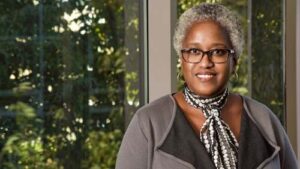 Renée White is Provost and Executive Vice President for Academic Affairs of The New School. Dr. White came to The New School from Wheaton College in Massachusetts, where she served as provost and a professor of sociology since 2016. She previously served as dean of the College of Arts and Sciences at Simmons University from 2011 to 2016.
Renée White is Provost and Executive Vice President for Academic Affairs of The New School. Dr. White came to The New School from Wheaton College in Massachusetts, where she served as provost and a professor of sociology since 2016. She previously served as dean of the College of Arts and Sciences at Simmons University from 2011 to 2016.
Dr. White is the editor of three books, including the acclaimed Spoils of War: Women of Color, Cultures, and Revolutions, and is the author of Putting Risk in Perspective: Black Teenage Lives in the Era of AIDS. She has served as editor of the Journal of HIV/AIDS Prevention in Children and Youth and as editorial advisor to the Journal of HIV/AIDS and Social Services. Dr. White was also a Wye Faculty Fellow at the Aspen Institute and completed a National Endowment for the Humanities Fellowship in Black film studies. Her current research is in the areas of the impact of public discourse on social policy concerning reproductive rights, representations of Blackness in popular culture, and applications of black feminist theory to higher education leadership.
Dr. White holds an AB with honors from Brown University and an MA and PhD from Yale University, where she was awarded a Mellon Foundation doctoral fellowship. She is a member of the Editorial Review Board of the Journal of Women and Gender in Higher Education. She also serves on the Vision 2020 National Leadership Circle and served on the Chief Academic Officers Task Force of the Council of Independent Colleges (CIC) from 2019 to 2021.
Sacoby Wilson
 Dr. Sacoby Wilson is an Associate Professor with the Maryland Institute for Applied Environmental Health and Department of Epidemiology and Biostatistics in the University of Maryland, College Park School of Public Health. Dr. Wilson has 15 years of experience as an environmental health scientist in the areas of exposure science, environmental justice, environmental health disparities, community-engaged research including crowd science and community-based participatory research (CBPR), water quality analysis, air pollution studies, built environment, industrial animal production, climate change, community resiliency and sustainability. He works primarily in partnership with community-based organizations to study and address environmental justice and health issues and translate research to action.
Dr. Sacoby Wilson is an Associate Professor with the Maryland Institute for Applied Environmental Health and Department of Epidemiology and Biostatistics in the University of Maryland, College Park School of Public Health. Dr. Wilson has 15 years of experience as an environmental health scientist in the areas of exposure science, environmental justice, environmental health disparities, community-engaged research including crowd science and community-based participatory research (CBPR), water quality analysis, air pollution studies, built environment, industrial animal production, climate change, community resiliency and sustainability. He works primarily in partnership with community-based organizations to study and address environmental justice and health issues and translate research to action.









